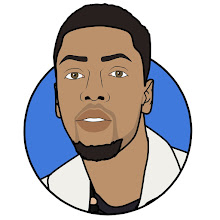Is there a link between Headaches, hypertension and stroke?

HEAD ACHES.
Of course, not all headaches are due to high blood pressure, but all high blood pressure causes headaches. Although headaches may be due to several maladies, including tension, migraine, eye strain, dehydration, low blood sugar, sinusitis and common cold, much rarer are headaches due to life-threatening conditions such as meningitis, which is a bacterial infection of the brain covering, encephalitis an infection of the brain; cerebral aneurysms (an expansion of the blood vessels in the brain), extremely high blood pressure and brain cancer.
Headaches can also be due to brain injury, while many women also get headaches during or just before their monthly cycle. Pains in the neck or upper back can also be considered as headaches. The types of headaches that are usually associated with hypertension are the ones you may get in the early mornings on waking up. When you have high blood pressure that is not treated properly, you may have headaches in the mornings, blurred vision and, sometimes, depression. What makes high blood pressure dangerous is that it can lead to a stroke, which is life-threatening; and can lead to death or severe physical and/or mental incapacitation. Only very few lucky and healthy individuals make a full recovery after a stroke.
HYPERTENSION.
Hypertension is commonly referred to as high blood pressure, where the blood pressure is chronically high. Hypertension occurs when blood is forced through the arteries at an increased pressure. The arteries are the vessels that carry blood from the heart to all other tissues and organs of the body. If you have high blood pressure, it does not necessarily mean that you are under excessive emotional tension, although emotional tension and stress can temporarily increase your blood pressure. In fact, some people may lead totally stress-free and laidback lives and still have high blood pressure because they have familial hypertension that is, it runs in the family and is genetic.
Generally, the higher the blood pressure, the greater the risk of damage to several organs of the body, including the heart, kidney, arteries, eyes and brain. Untreated hypertension affects all organs and can shorten life by up to 10 to 20 years. High blood pressure increases the risk of developing heart and kidney diseases, hardening of the arteries (arteriosclerosis), eye damage and stroke (brain damage). By the time your blood pressure is above 140/90, you are considered to be hypertensive. Increase in diastolic pressure, which is the bottom part of the reading, is more important in defining someone as hypertensive. However, patients with diabetes mellitus or kidney disease with blood pressure as high as 130/80 mmHg should be considered in danger and in need of urgent treatment. Proper diagnosis of high blood pressure is important, so that you can get the needed treatment to normalise the blood pressure and avoid associated complications. For older people over 50 years old, the systolic readings (upper readings) are more important. Systolic hypertension represents a greater risk for people over 50. Unless you have your blood pressure measured, you may never know you have hypertension. There are no symptoms, except that nagging headache. That is why it is called the silent killer.
STROKE.
A stroke is the sudden reduction of blood flow to a portion of the brain.There are two main types of strokes: ischemic, also known as thrombotic, which is caused by a blood clot in the brain; and haemorrhagic, which is caused by bleeding in the brain. A stroke of any type is an extreme medical emergency and prompt treatment is imperative if the patient is to survive.
Although haemorrhagic strokes account for 15 per cent of all strokes, patients suffering from this type of stroke are more likely to die. Sometimes, it is difficult for non-medical people to recognise that somebody is having a stroke, but immediate help is essential. A person suffering from stroke must get help no longer than three hours after the stroke for his life to be saved. So, it is important for family and friends to know the signs of a stroke by doing the following simple tests:
1. Ask him/her to smile.
2. Ask him to talk. He must say a simple sentence coherently.
3. Ask him to raise both arms.
4. Ask him to stick out his tongue.
The tongue should not be twisted. If he is having trouble doing any of these simple things, then he may be having a stroke.
Stay entertained, Stay entertained with the right informations, & Share what you know.

0 Response to "Is there a link between Headaches, hypertension and stroke?"
Post a Comment